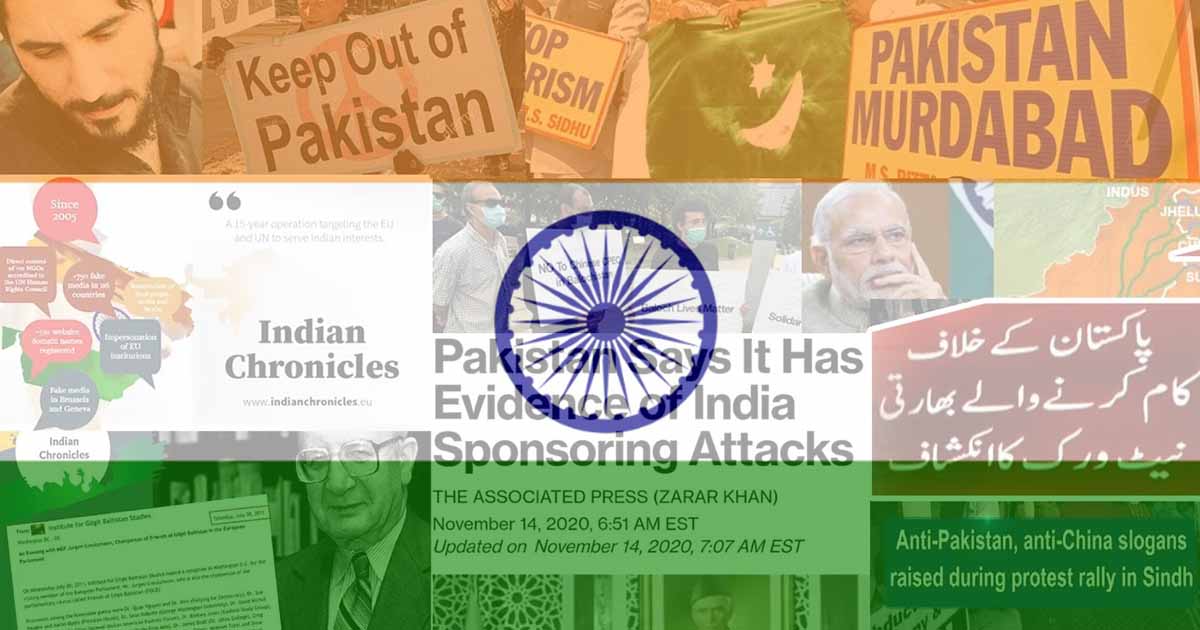
by Zafar Iqbal Yousafzai 26 March 2023
Propaganda is a tool that has been used throughout history by various governments and media outlets to sway public opinion and gain political advantage. Unfortunately, it is still prevalent in today’s world, and the Indian media’s propaganda campaign against Pakistan is an example of this.
The EU Disinfo Lab report, which was published in 2020, exposed a vast Indian network that was involved in propagating falsehoods and influencing EU Parliamentarians and international public opinion. The report highlighted how Indian media outlets used fake websites, NGOs, and fake news to promote India’s interests and discredit Pakistan. This campaign lasted for over 15 years, and its primary objective was to defame Pakistan and improve India’s international image.
Moreover, international news channels, including France 24 and BBC, have criticized Indian news channels for their irresponsible reporting and spreading of fake news. These reports further highlight the ethical shortcomings of Indian media outlets and their unprofessional reporting methods.
One of the main issues that Indian media has been propagating against Pakistan is cross-border terrorism in IIOJK. However, this narrative is highly disputed, and there have been conflicting claims by both India and Pakistan regarding this issue. While Indian media outlets have claimed a decline in infiltration incidents due to the Indian Army’s effective measures, Pakistan has denied any involvement in cross-border terrorism.
In the aftermath of the abrogation of Articles 370 and 35A in 2019, Indian media started claiming rapid improvement in the state of normalcy in the troubled occupied region. The tall claims by Indian military commanders also supported India’s state narrative. Statements made by the GOC 15 Corps deployed in IIOJK were one such example. He claimed that “we have stopped infiltration to a large extent. In 2020 there were 130 attempts of infiltration in Kashmir; this year, the number is less than 30. The decline in the infiltration incidents from across the borders was due to the Indian Army’s effective measures.”
The tall claims made by Indian military command also supported the Indian state’s narrative. Statements from GOC 15 Corps deployed in IIOJK bear testimony to this. The GOC stated, “We have stopped infiltration to a large extent. In 2020, there were 130 attempts of infiltration in Kashmir; this year, the number is less than 30. The decline in the number of infiltration incidents from across the borders was due to the Indian Army’s effective measures.” The Economic Times also highlighted the GOC’s statement, “At least in the Kashmir Valley, there have been zero ceasefire violations. Also, there has been no instigation from across the border.”
Interestingly, for two continuous years after India’s highly illegal move to strip the Kashmiris of their right of autonomy accorded as per the UNSC resolution, India boasted about completely seizing cross-border terrorism. Moreover, the Indian government and senior army leadership trumpeted about bringing the level of so-called militancy to near zero.
Similarly, the Economic Times also highlighted the GOC 15 Corps statement “at least in the Kashmir Valley, there have been zero ceasefire violations. Also, there has been no instigation from across the border.” The Indian government and senior army leadership also trumpeted about bringing the level of so-called militancy to near zero.
However, the recent surge in Indian propaganda regarding cross-border terrorism from Pakistan seems to indicate that the Indian government has ulterior motives to build a database to intrude and invade Pakistan.
Pakistan has reiterated its stance of solving the Kashmir problem through peaceful dialogue in line with the UNSC resolution. Therefore, it is essential for the international community to come forward and caution India to refrain from the state-sponsored policy of falsehood and initiate propaganda campaigns against Pakistan.
Hence, the Indian media’s propaganda campaign against Pakistan is a reminder of the dangers of fake news and the importance of maintaining journalistic integrity. It is crucial for media outlets to report factual information and engage in ethical reporting practices. Moreover, it is essential for governments to resolve their issues through diplomacy and peaceful dialogue, rather than resorting to propaganda or military means.
